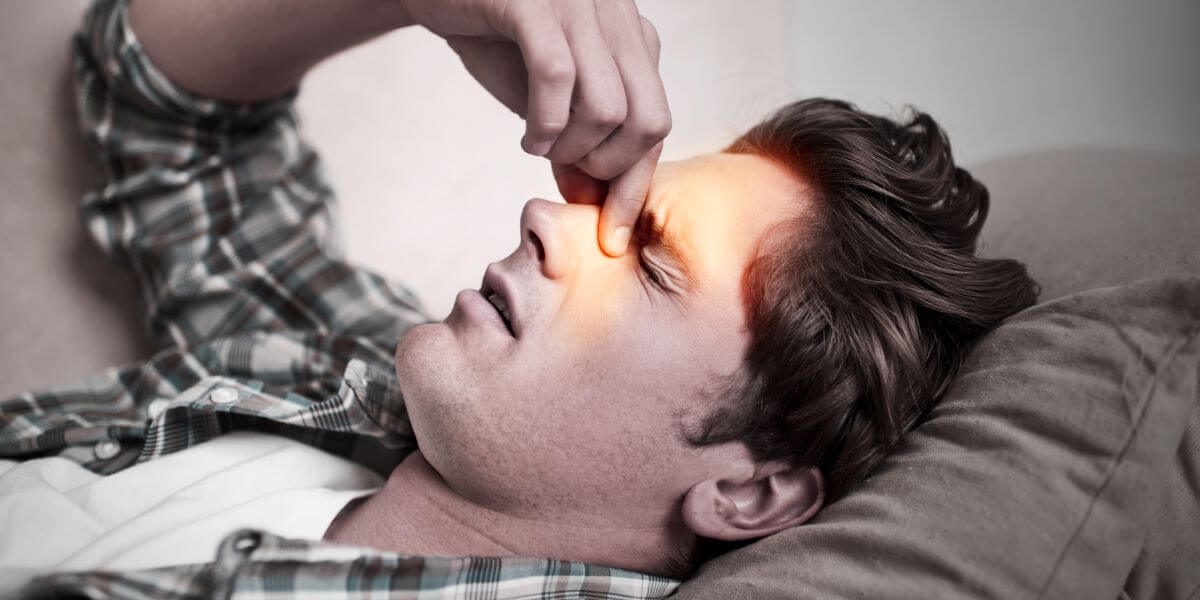
Dealing with an ear infection can be frustrating and uncomfortable, especially when it impacts your daily life. Whether it’s for you or your child, ear pain, pressure, and hearing issues can create a sense of helplessness. At Pikes Peak ENT, Allergy & Asthma, we understand these struggles, and we are here to provide compassionate, expert care to help you or your loved one feel better as quickly as possible.
Ear infections are common, especially in children, but adults can experience them too. They can cause significant pain, disrupt sleep, and interfere with daily activities. Our team is dedicated to helping you understand the cause of your symptoms, providing effective treatments, and ensuring you have the support you need to feel better.
At Pikes Peak ENT, Allergy & Asthma, we believe in personalized care that takes into account your unique symptoms and health needs. Our values include compassionate care, effective communication, and a commitment to achieving the best outcomes for all of our patients. We treat every patient as if they were a part of our family, offering tailored solutions to ensure the best possible treatment for both adults and children.
What is an Ear Infection?
An ear infection occurs when bacteria or viruses invade the middle ear—the air-filled space behind the eardrum. The infection often causes swelling and fluid build-up, leading to discomfort and pain. In children, ear infections are particularly common because their Eustachian tubes, which help drain fluid from the middle ear, are shorter and more horizontal than in adults. This makes it easier for fluid to become trapped and infected.
Infections can affect different parts of the ear, but most commonly, we see acute otitis media, where the middle ear becomes inflamed and infected. Other types include outer ear infections (otitis externa), often referred to as swimmer’s ear, and inner ear infections, which can impact balance.
For both children and adults, ear infections are often linked to colds, sinus infections, or allergies, which lead to congestion and the buildup of fluids in the ear. Early diagnosis and treatment are key to preventing more severe complications, like hearing loss or recurring infections.
Common Symptoms of an Ear Infection
Symptoms of an ear infection vary depending on the severity and type of infection, but there are some common signs you should look out for. Both children and adults can experience these symptoms, although children may have a harder time expressing their discomfort.
Ear pain – One of the most common signs, ranging from mild discomfort to severe, throbbing pain.
Difficulty hearing – Fluid buildup in the middle ear can dampen sound, making it harder to hear clearly.
Feeling of fullness in the ear – Many patients report a pressure or fullness in the ear that can be uncomfortable.
Fever – Particularly in children, an ear infection can cause a low-grade fever as the body fights off the infection.
Fluid drainage – Sometimes, fluid or pus may drain from the ear if the eardrum has ruptured.
Irritability and trouble sleeping – Especially in children, discomfort from the infection can lead to difficulty sleeping and increased irritability.
Balance issues – If the inner ear is affected, you may experience dizziness or balance problems.
If you or your child are experiencing these symptoms, it’s important to consult with a doctor to prevent complications and ensure appropriate treatment.
Common Causes of Ear Infections
Ear infections often arise due to several factors that disrupt the normal functioning of the Eustachian tubes. Understanding these causes can help you or your loved one avoid future infections and seek timely treatment.
Colds and respiratory infections – Viral or bacterial infections in the upper respiratory system can cause swelling and block the Eustachian tubes, leading to fluid buildup in the middle ear.
Allergies – Allergic reactions can cause inflammation and fluid accumulation in the nasal passages, sinuses, and ears, creating an environment for infections to develop.
Sinus infections – Bacteria or viruses from a sinus infection can travel to the ear, causing inflammation and infection.
Fluid trapped in the ear – This is particularly common in children due to their shorter, more horizontal Eustachian tubes, but adults can also experience this, especially after colds or sinus infections.
Secondhand smoke – Exposure to cigarette smoke can irritate and inflame the respiratory system and Eustachian tubes, increasing the risk of infections.
Treatment Options for Ear Infections
Treating ear infections depends on the severity of the symptoms, the type of infection, and the patient’s age. While many mild ear infections resolve on their own, medical treatment is often necessary to manage pain, reduce inflammation, and prevent complications.
Natural / At-Home Remedies
We understand that getting to the doctor isn’t always easy, especially if you’re dealing with minor symptoms or trying to help your child find relief at home. There are some natural remedies you can try to ease discomfort while waiting for a doctor’s visit.
Warm compress – Applying a warm compress to the affected ear can help soothe pain and reduce inflammation.
Rest and hydration – Encouraging plenty of rest and fluids can help your body fight off the infection and reduce symptoms.
Over-the-counter pain relievers – Pain relievers like ibuprofen or acetaminophen can help manage pain and reduce fever, but always use the correct dosage, especially for children.
Elevation – Keeping your head elevated while resting can help fluid drain from the ear and relieve pressure.
While these remedies can provide temporary relief, they do not replace professional medical treatment, especially if symptoms worsen or persist.
Prescription Options
If home remedies aren’t enough, your doctor may recommend prescription medications to clear the infection and alleviate pain.
Antibiotics – For bacterial ear infections, antibiotics are often the first line of treatment, especially in young children or if the infection is severe.
Ear drops – Medicated ear drops may be prescribed to reduce pain and inflammation, especially for outer ear infections like swimmer’s ear.
Decongestants or antihistamines – If allergies or sinus issues are contributing to the infection, your doctor may suggest decongestants or antihistamines to reduce swelling and allow the Eustachian tubes to drain.
Surgical Options
In some cases, especially if ear infections are recurrent or do not respond to medical treatments, surgery may be considered. This is often the case in children who suffer from frequent ear infections or those who develop hearing loss due to fluid buildup.
Myringotomy – A small incision is made in the eardrum to drain fluid, relieving pressure and allowing the infection to heal.
Ear tubes – Inserting small tubes in the eardrums helps air flow and prevents fluid buildup, reducing the risk of future infections. We also specialize in the newest Hummingbird ear tubes for our pediatric patients.
Surgery is typically only recommended after more conservative treatments have failed, but it can provide significant relief and reduce the likelihood of recurrent infections.
When to See a Doctor
While ear infections are common, there are certain times when it’s important to seek professional medical help, especially from a specialist. At Pikes Peak ENT, Allergy & Asthma, we are here to help you and your family get the care you need.
Persistent pain – If ear pain lasts more than a day or two, especially if it’s severe, it’s time to consult a specialist.
Hearing loss – Any noticeable decrease in hearing should be addressed immediately to avoid long-term damage.
Recurrent infections – Frequent ear infections, especially in children, may require specialized treatment to prevent long-term complications.
Fluid drainage – If you notice fluid, pus, or blood draining from the ear, seek medical attention right away, as this may indicate a ruptured eardrum.
Balance problems or dizziness – These symptoms can indicate an inner ear issue that requires prompt treatment.
If you or your child experience any of these symptoms, don’t hesitate to contact the specialists at Pikes Peak ENT, Allergy & Asthma. We have the expertise to provide the care you need, and we’re here to help every step of the way.
Take Control of Your Health with Personalized Care
Book an appointment today and let us help you breathe easier, hear better, and live more comfortably with our expert ENT, allergy and asthma care
At Pikes Peak ENT, Allergy & Asthma, we’re dedicated to helping both children and adults manage and overcome ear infections. Our team of experienced specialists understands the impact ear infections can have on your life, and we work to provide the most effective treatments to restore your ear health and well-being.
Sources
- Ear Infections – Mayo Clinic https://www.mayoclinic.org
- Otitis Media – American Academy of Otolaryngology https://www.entnet.org
- Middle Ear Infections – National Institutes of Health https://www.nih.gov
- Acute Otitis Media in Children – MedlinePlus https://medline

